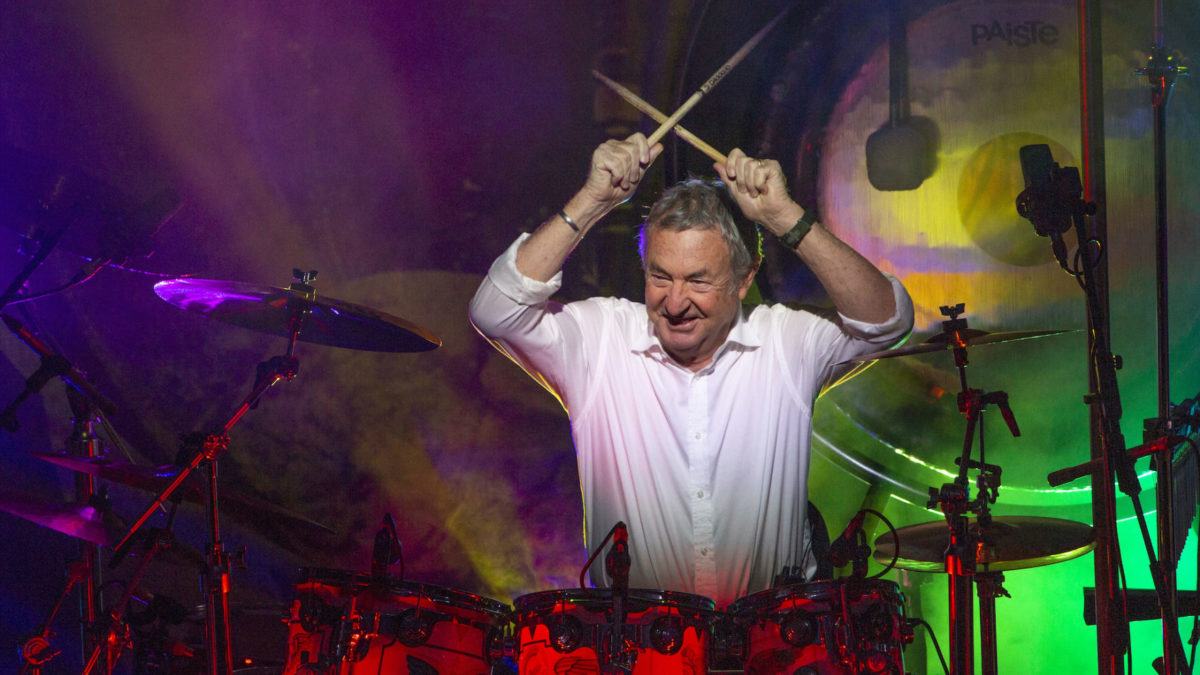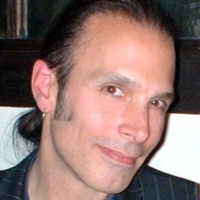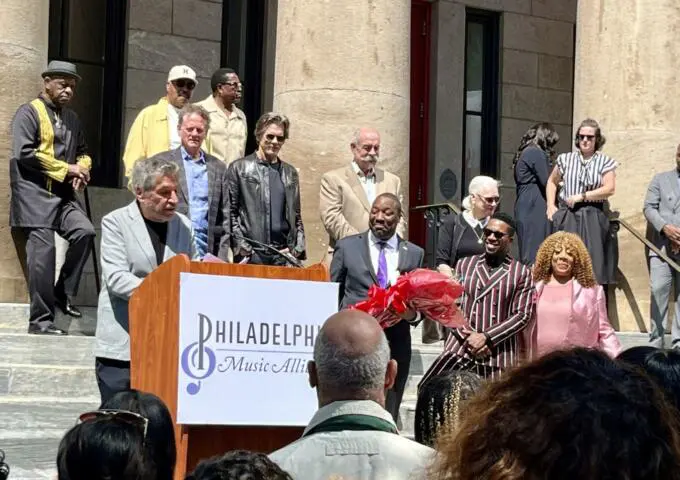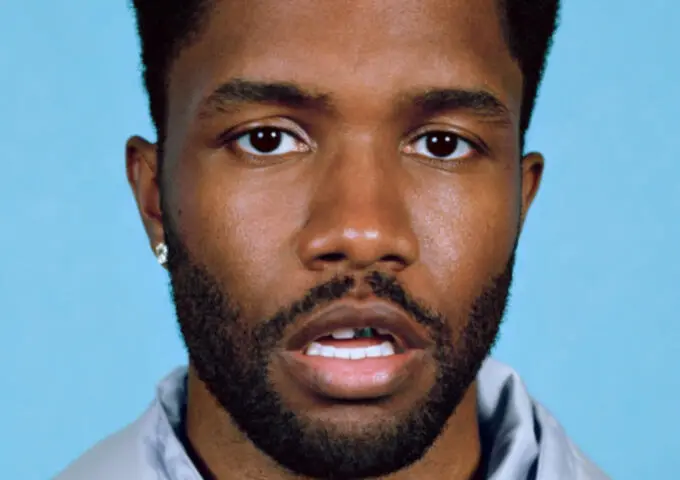When Pink Floyd drummer Nick Mason hits The Met Philadelphia for his first solo tour, he will do so on April 20, an apt date considering the “interstellar overdrive” and psychedelic gamesmanship of the night’s material.
Mason may be going this one alone, but expect much of the psilocybin-laced sounds of Floyd and its magnum opus, “The Dark Side of the Moon.” Before his new live showcase aptly entitled “A Saucerful of Secrets” – celebrating the Pink Floyd album of the same name – Mason spoke with Philadelphia Weekly about getting back in the groove of performing. In addition, he explains intricacies that comprise a live tour and his first ever in Philly a sold-out stadium show inside the former JFK Stadium on July 24, 1968.
You are playing in Philly for this tour on 4/20. Pink Floyd has always had a movement toward mind expansion, a stoner’s feel vibe, much like the trippy music that you and your band will play at The Met. Do you smoke? Or has marijuana had much presence in your life, past or present?
You’re going to think I’m kidding, but not very much. Not really. Although people have always painted us as this psychedelic band – and of course Syd had his problems with LSD – that probably frightened us off from any drugs. Plus, so much of our music is so technical, it’s not free form and about wild abandon. I can’t remember any of Pink Floyd ever being on stage under the influence of anything apart from, say, a glass of white wine.
Wow. Quite the revelation. And interesting considering when I’ve interviewed Roger Waters face-to-face, that’s what he was drinking: white wine.
We were the house band for many of the acid psychedelic experiences in London, but I don’t think that we were disciples of any drugs, pot or otherwise, in any way.
What was the secret to re-learning or getting into the mindset of material that neither you nor Pink Floyd performed for ages once “Dark Side of the Moon” disbanded? Specifically, all of the Syd Barrett stuff you and your crew will execute here? In my mind, there’s a complexity to Syd-songs that you miss at first listen.
You’re absolutely right. When we started rehearsing, I remembered the songs but had forgotten their complexity. There are odd bar lengths and much that doesn’t follow the usual patterns, all of which makes playing them far more interesting. Having accomplished musicians with me helps me sort out what is needed at any given moment.
Considering your own parts within the early Barrett or Roger Waters material you’ll perform, are you looking to further the intent and dimension of the original tracks or hew closer to the original vibe?
It’s a rather delicate balance. I, or we, obviously want to represent what was there originally, but, maybe give them enough twists to make it doubly interesting 50 years later. It depends on the attitude one takes to it. You can utilize the same structure as, say, on “Atom Heart Mother,” but you take a few liberties. Ours is different than the original, but I believe we get across its melodies.
Last autumn, Rhino released “Unattended Luggage,” a box of your solo records that show how adventurous and audacious your compositions are. Why not include that material in this psychedelic live set? Better still – why did you not tour on your own then?
It was on my mind. Probably I thought I’d be on out on the road with Pink Floyd or David [Gilmour, Floyd’s guitarist]. I also got caught up in other things, such as Floyd’s history exhibition, which actually led me to my own tour, delving into our past. I came away with a guidebook in my hand with all the backstory and none of the playing, the actual music. That brought it home for me. As for playing my solo work live, I’m less confident that there would be [an] audience, especially as the albums don’t sit so comfortably together.
How much of the architecture student is left in what you do?
It’s a brilliant mix of technology and art, teaching you the ability to organize and be incredibly helpful while staging. I highly recommend it to anyone who wants to be in the music industry.
The album you named your solo tour for is the changing of the guard Pink Floyd album – Syd was there, but leaving, with David there too – his replacement. What do you remember most about it?
It’s one of my favorite albums in that it led to so many other things. There’s Roger’s song, “Jug Band Blues.” Such a long sad goodbye to Syd. Extraordinarily poignant. By the time Syd was going, we were at our wits’ end, so there’s a sense of hope and experimentation there too. Some of its more structured, organized moments were precursors to “Dark Side” and even “The Wall.”
Quick history lesson. Pink Floyd’s first gig in Philadelphia was at our old JFK Stadium for Summer Festival in July 1968. Tell us, do you recall that show at all?
OK. Hang on. It rained. The Who were headlining. We brought the gloom, I suppose, [considering] right [when we had] our set the heavens opened. Right after we got off the stage, we went to do radio on one of your FM stations with Keith Moon. It was absolute chaos. I’m sure there’s a tape of it somewhere. It was quite wild.
[Writers note: Some fact checking revealed that 1968 interview occurred on WMMR (93.3-FM), and featured non-touring Pink Floyd band member Syd Barrett].
Fans have only ever witnessed your live act in stadiums and hockey arenas. The Met is neither. What is the key to bringing such an epic roar down a notch?
For this music and the enjoyment of it, an intimate venue is more enjoyable. To put it bluntly, there’s always the question of how many tickets you can sell, but to be able to have a more direct relationship with the audience is very special, especially with this material. [Pink Floyd] did our first solo gig at a pub in London. I realized then the connection to the audience. Playing in a stadium is a fantastic feeling, even though 20 percent [of fans are] just there doing drugs. Such close proximity as this – people really concentrating on the music – it’s really something.
TWITTER: @ADAMOROSI





